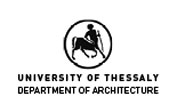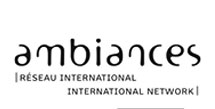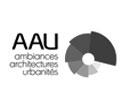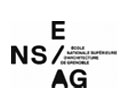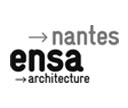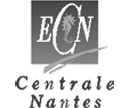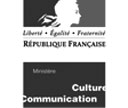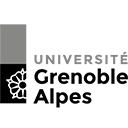Speakers
Jean-Paul Thibaud
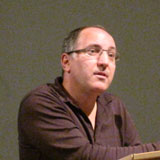
The ambient becoming of the urban world
The growing interest in ambiances and atmospheres is a hint: our sensitivity to inhabited spaces is indeed changing. What about ambiances in the understanding and the transformation of our sensory conditions of existence? Are we not witnessing the emergence of a new ecology of the senses more attentive to the atmospheric existence of our forms of life? Can we speak of an ambient becoming of the urban world? Asking such questions enables to reveal the powers of ambiances, to highlight what they perform and reflect upon urbanity.
Rather than approaching ambiance as a closed domain of research, we will draw a few lines of flight to help us navigate within this moving ocean: a line of meeting will focus on the various processes of aestheticisation that cross and foreshadow an urban ecology of ambiances; a line of existence will wonder why ambiance is so elusive and why it resists any final determination; a line of paradox will articulate the vital and emotional strength of ambiance and its ability to influence and control; a line of questioning will take the measure of the plurality of the paradigms of ambiance and will question their dialogue and difference; a line of effectuation will accompany ambiance within its material fabric, its effective practices and its scientific uses.
The proposal will be very general, not deepening a particular problem, nor looking for any exhaustive references and pieces of work. Instead, we aim at building a dynamic framework which could provide a basic orientation. We contend that the notion of ambiance operates as an analyser and operator of urban transformations. The purpose will be deliberately exploratory and prospective. The emphasis will focus on the transversal and nomadic characters of the notion of ambiance... on its efficience and modus operandi... on its lesser existence, discreet and subthreshold ...
Biography
Jean-Paul Thibaud, sociologist, is Senior Researcher at CNRS. He is researcher at CRESSON research laboratory (Research Center on Sonic Space and the Urban Environment, Umr 1563 Ambiances Architectures Urbanités). His field of research covers the theory of urban ambiances, ordinary perception in urban environment, sensory culture and ethnography of public places, anthropology of sound, in situ qualitative methodology. In 2008 Jean-Paul Thibaud has founded the International Ambiances Network (www.ambiances.net). He has recently published a book entitled En quête d'ambiances. Eprouver la ville en passant (Geneva: MétisPresses, 2015)
Prodromos Nikoforidis and Bernard Cuomo
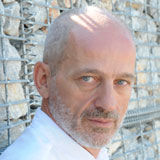
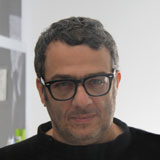
paralia_zo
The development project of the New Sea Side in Thessaloniki is all about the adventure of meeting a place. It is also a dialogue, because in the concept, the generosity of the context, the moods assoiated to natural phenomenato of the place are essential. So it was to testify through this somewhat constant fascination confrontation that provides the landscape and its variations.
A public space is nevertheless not only a place of contemplation. It is now a place of life and use that belongs to everyone, but also to each. Attendance, ownership phenomena and citizen initiatives contribute to realize the nature of this space and infuse its vitality.
Biography
Prodromos Nikiforidis and Bernard Cuomo are working together since 1986. Their common path started from the architectural school of Toulouse in the early 80s.
In 1986 they participated in their first architectural competition. Notable among the projects to date: Residential building in Paris 1992-1994, Cultural Centre and Theatre in Menemeni Thessaloniki 1997, Technopolis Thessaloniki from 2006 to 2009, the Treasury of the Bank of Greece in Thessaloniki from 2001 to 2009 and the New Restructuration of the Beach in Thessaloniki 2000 -2014.
In 2009 they were awarded by the Architecture Prize for the five years from 2004 to 2008, by the Greek Institute of Architecture, 2014, by UIA -International Union prize of Architects- friendly spaces accessible for all for the Regeneration of New Beach in Thessaloniki, by the SADAS-PEA award for four years 2010-2014, the STRUCTURES prize for the best implemented project for the years 2010-2014, while in 2015 the New Beach project was included in final list for the Mies van der Rohe award 2015 and received the award Archmarathon awards 2015. it was preceded by other awards international, pan-European and national competitions, such as the first prize for the competition EUROPAN 2, the first prize for the redesign of the monumental Axis of Aristotle, the first prize for the restoration of New Beach Thessaloniki, the first prize for Academy of Arts and Culture of the Municipality of Kalamaria, Price for the tender for the reconstruction of Athens "Rethink Athens", the a 'award for the rehabilitation of beachfront Naples and Monemvasia etc.
In 2016, they were awarded by the Yan Ye Award Professional Competition and were selected by the AIAC and the A10 to represent Greece at IN practice within the Fuoribiennale Venice.
They have taken part in many exhibitions and conferences
François Laplantine
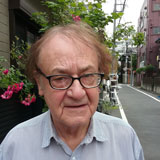
Ambiance, common(-)place, common time, place creating connection
Aesthetic transformations of the sensory and aporia of language
Two contradictory trends are apparent in the contemporary world: one tending towards greater uniformity, in architecture, music and such; the other towards further fragmentation. The term ‘globalization’ either causes societies to dissolve, through decreasing differentiation of forms, or to harden in differentialist reaction. But alongside dichotomous rationales – trendy or outdated ambiance, open or closed neighbourhood, innovation or conservation – there is also scope, witness Japan, for a back-and-forth rhythm which contradicts stabilization by means of the principle of identity and deprived third parties.
The becoming of ambiances raises the question of the transformation of space over time. How does time leave an impression on space? How does space express time? Drawing on ethnographic observation of unobtrusive everyday street ambiances in Sao Paulo, Tokyo and Beijing, we shall show that an ambiance is the singular encounter between an environment and a moment, occurring in a (collective) subjectivity involving sharing of the sensory, memory and imagination.
The challenge raised by the theme of the Third International Congress is inextricably epistemological and linguistic. An ambiance cannot be prompted, less still programmed. It is not an ‘object’. It does not unfold in space and time, but generates an unpredictable, indeducible space-time. We cannot ‘have’ an ambiance any more than we are ‘moving’ towards one. An ambiance comes upon us, indivisible, barely expressible yet undeniable. This experience refuses to be broken down into the western dualism of subject and object. Indeed it is scarcely compatible with the particularity of Indo-European languages in which the grammatical structure of a sentence is driven by a subject of which the position is anterior, exterior and superior, with a tendency to abstract itself from its surroundings, reduced to a mere backdrop. It is impossible to set forth an ambiance, starting from a eurocentric ‘I’, which pre-exists the context and can abstract itself from it. To interrogate the intransitive nature of this experience we shall use the Japanese language, which does not separate subject (shutai), place (basho), setting (fôdo) and connection (ningen). However, despite the difficulty of expressing an ambiance in everyday speech or analysing it – in other words breaking it down – in learned terms (Wittgenstein) – an ambiance can be narrated, sung, danced, filmed and staged. In which case, whatever is no longer represented but rather recreated in this way is another ambiance.
Biography
François Laplantine is Emeritus Professor at Lyon 2 University, France, where he founded the anthropology department. He has carried out most of his research in Brazil, where two universities have awarded him an Honoris Causa degree, but his attention has recently shifted to Japan and China. He has published about 30 books, translated into several languages. Recent publications include Tokyo Ville Flottante, Stock, Paris, 2010; Une Autre Chine, De l’Incidence, St Vincent de Mercuze, 2012; Quand le Moi Devient Autre, CNRS Editions, Paris, 2014; L’Energie Discrète des Lucioles. Anthropologie et Images, L’Harmattan, Paris, 2014; The Life of the Senses: Introduction to a Modal Anthropology, Bloomsbury Academic, 2015; Non. Négation, Négatif, Négativite entre Chine, Japon et Europe, De l’Incidence, 2016.
Aglaée Degros
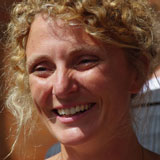
The art of creating relations
The art of creating relations – of connecting spaces, people and milieux – will be fundamental qualities of ambiances in the future.
In the past it was limits, autonomous surfaces and borders that were the constitutive elements of urban and rural ambiances. Today we are at the beginning of an era in which problems of relation matter more. Such relations define territory and landscape ; they are indispensable to social, economic, ecological and architectural regeneration. New infrastructures such as the Nordbahnstrasse, La Belle-vue Fietssnelweg and Ciclovia Belém illustrate this point.
The modes of action that each of these projects depend on are different from those of projet in the past. They are collaborative and do not hesitate to employ tactics involving “guerilla” actions, mock-ups, incremental design approaches, plans for transition as indispensalbe modalities for for the creation of ambiances in the future…
Biography
Aglaée Degros is an architect and the co-founder of Artgineering, an office for urbanism based in Rotterdam (NL) and Brussels (BE). Starting with precise observation of the existing territorial realities the office is at the meeting point of the spatial, social and cultural production of space.
Aglaée Degros is a professor at the Institute of urbanism at Graz TU (Graz University of Technology – Autriche).
Marcos Novak
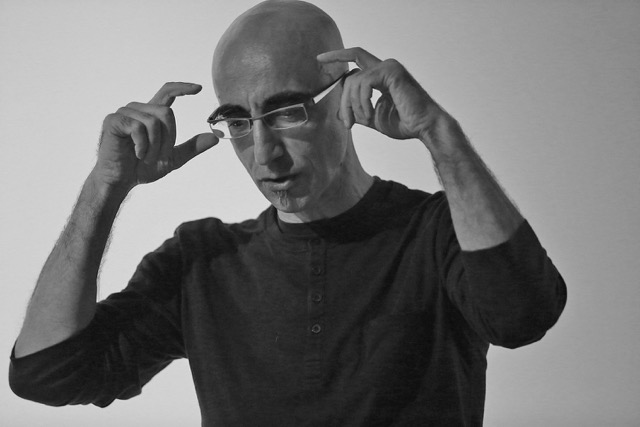
Oh, Ambient Demons: ἰὼ φίλοι δαίμονες, ἀμφιβάντες πόλιν
Important Dates
4 Jan. 2016:
Deadline for abstract submission
20 Fev. 2016:
End of review phase
25-26 Fev. 2016:
Feedback to authors
3 May 2016:
9 May 2016:
NEW Deadline for article submission
21-24 Sept. 2016:
Congress

